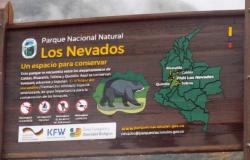A total of 16,595 students from the department of La Guajira benefited from the national government’s new free policy ‘I Can Study’, one of the main efforts to promote access and permanence in public higher education in the country.
At the end of the 2023-2 period, a total of 146,188 students in the Caribbean region benefited from free tuition to access higher education, thanks to an investment of 154,189 million pesos.
The program is governed by Law 2307 of 2023, decree 2271 of 2023 and operating regulations 2024, which has transformed educational opportunities for thousands of young people in the region.
These achievements demonstrate the Government of Change’s commitment to guarantee that more and more young people and citizens of the Caribbean have access to higher education without economic barriers.
To access the benefits of the Free ‘I Can Study’ Policy in the Caribbean, interested parties have six technical, technological and university institutions, including:
University Institution of Fine Arts and Sciences of Bolívar.
University Institution of Barranquilla (IUB).
Greater University Institution of Cartagena.
Humberto Velásquez García National Institute of Professional Technical Training.
National Institute of Professional Technical Training of San Andrés and Providencia (Infotep).
National Institute of Professional Technical Training of San Juan del Cesar.
Likewise, with seven universities such as:
University cartagena.
University of Cordoba.
University of La Guajira.
University of Sucre.
Atlantic University.
University of Magdalena.
Popular University of Cesar.
On the other hand, to be a beneficiary of the Free Tuition Policy ‘I Can Study’, applicants must meet the following requirements: be enrolled in an undergraduate academic program (vocational, technological or university technical ) in any of the public higher education institutions listed in this regulation and registered in Snies, not having a university professional degree, demonstrating belonging to any of the following groups: Socioeconomic stratum 1, 2, 3 or without stratum, indigenous population , Rrom, black, Afro-Colombian, Raizal and Palenquera communities.
As well as population victims of the conflict, people with disabilities, peasant communities, population deprived of liberty and groups A, B or C of Sisbén IV, in any of its subgroups.
It is important to highlight that there is no age limit or obligation to be a Colombian national to access these benefits. The program covers the value of the ordinary net enrollment of undergraduate students in public HEIs throughout the entire training process, which includes between one to two additional periods in case of academic lag.
Additionally, the most vulnerable people will be able to count on support in conjunction with the ‘Young Income for Social Prosperity’ program.
Finally, to apply for the benefit, interested parties must follow these steps: Verify compliance with the access requirements, select the higher education institution (HEI) and program of interest, be admitted and be enrolled in the IES and selected program.
It is recommended to consult directly with the institution of interest to obtain detailed information on dates and procedures, since academic calendars and deadlines for registration processes vary according to each institution.
For more information about the ‘I Can Study’ Free Policy, interested parties can consult the website of the Ministry of National Education.






